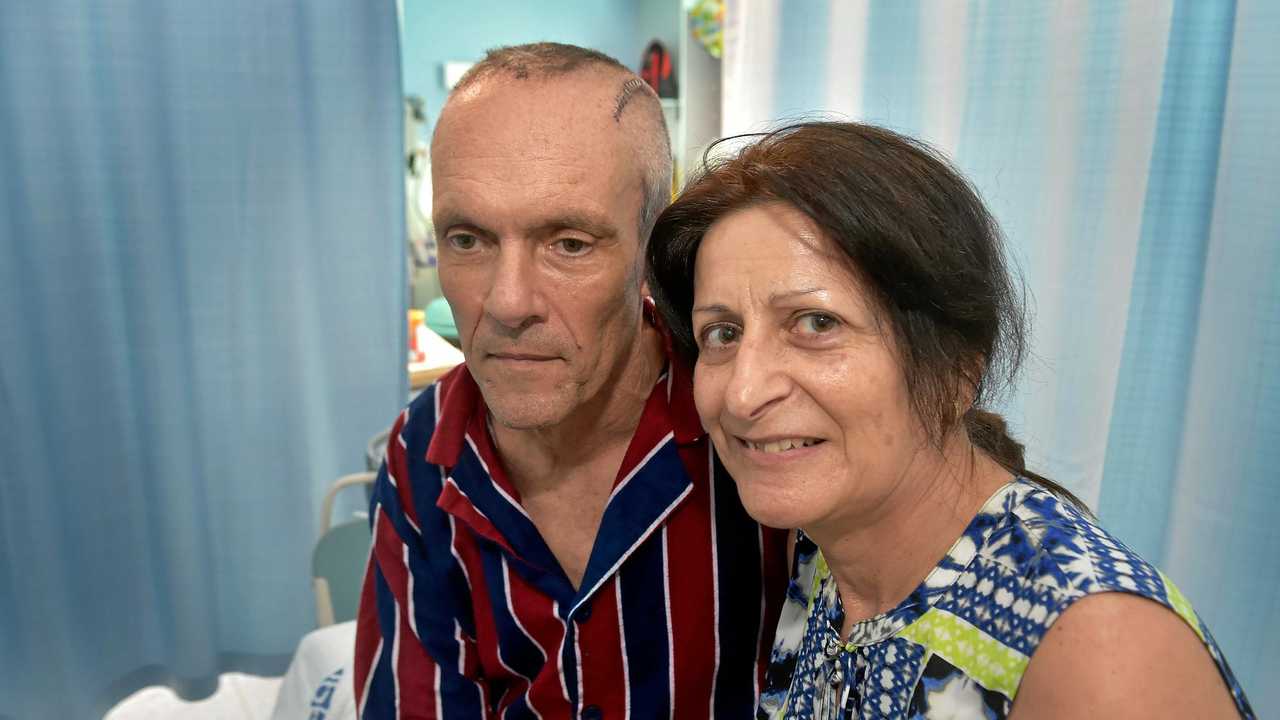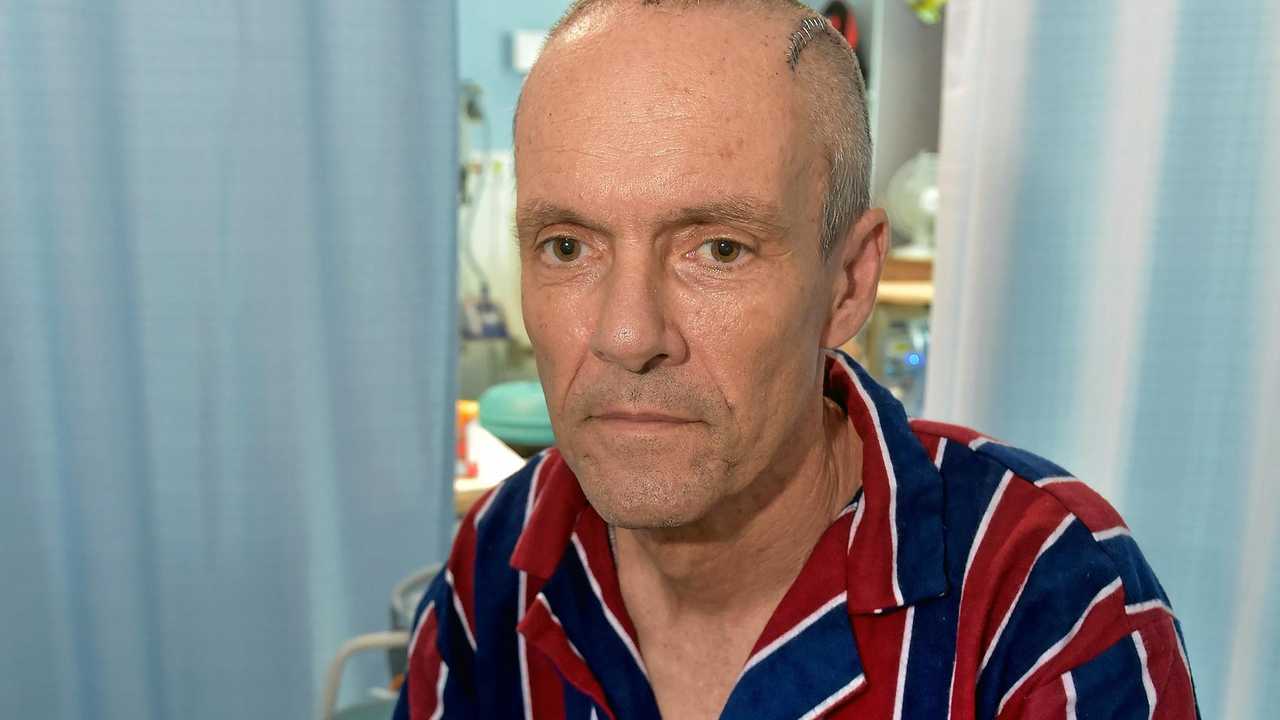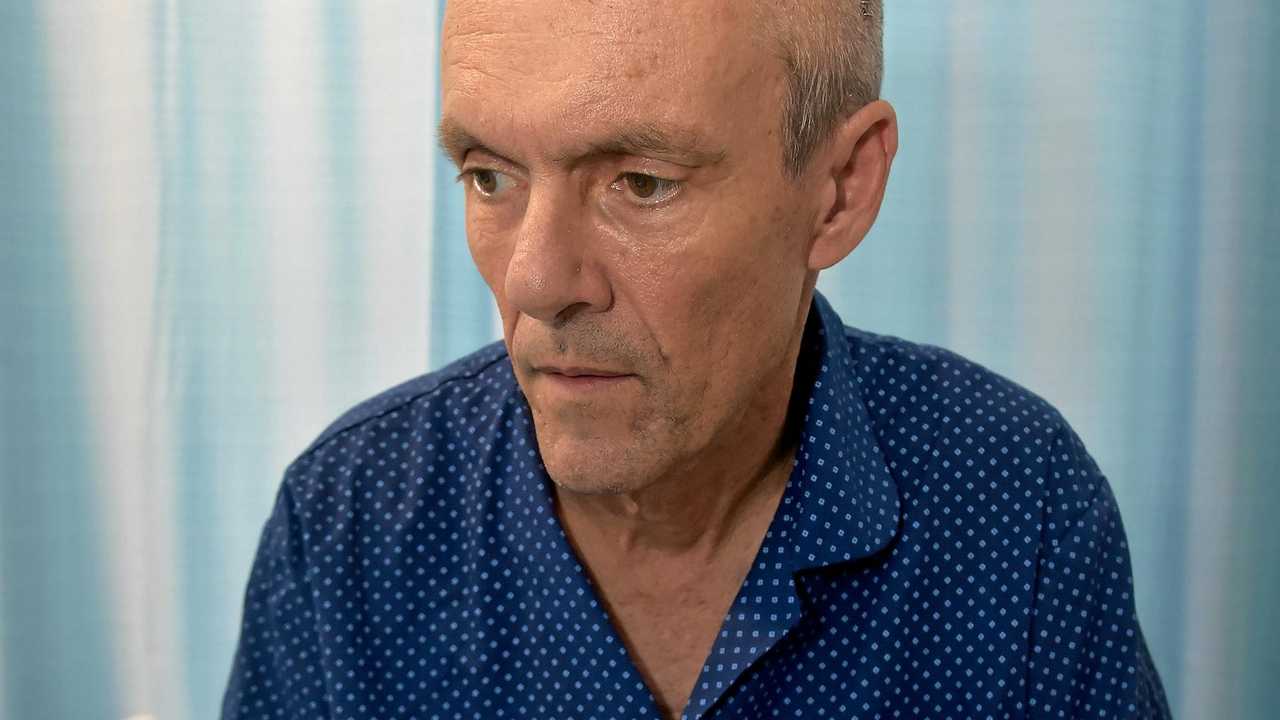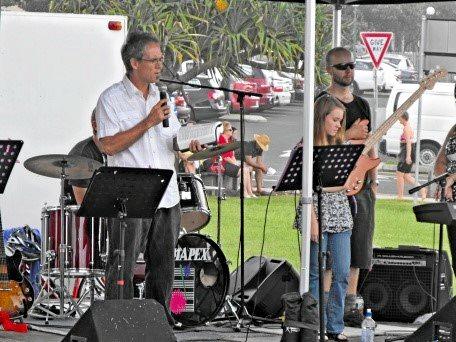50 second memory: Diagnosed with dementia at 57
STEVE Nichol, the surfer who grew a church, built a school and was the driving force behind the Coolum carols, cannot remember any of his achievements.

STEVE Nichol, the surfer who grew a church in Coolum Beach, built a local school and was the driving force behind the popular Coolum carols, cannot remember any of his great achievements.
The long-time local who loved his faith, his family, surfing, music and helping others even struggles to recognise his wife Angie and the couple's five children.
Two-and-a-half years ago, Steve was diagnosed with early onset dementia and given five to 10 years to live. He was 57 at the time.
But the progression of his disease has been aggressive and very, very fast.
In the past month, Angie and her sons have had to "say goodbye four times" as doctors feared Steve wouldn't make it through the brain surgery he needed as a result of bleeding on the brain.
Somehow, Steve pulled through each operation and may be able to leave the Royal Brisbane and Women's Hospital in the next few days.
But his memory only has a 50-second loop and the challenge of bringing him home will be huge.
Steve and Angie had been involved with Coolum Christian Family Church for decades. Steve had the vision, purchased the land and oversaw the building of the Coolum Beach Christian School on Arcoona Rd.
They had already left the church when, after a bicycle accident, Steve's condition was diagnosed.
"We went for cycle, we always cycled. It was a normal morning in August 2014."

He broke his ribs and collarbone in the crash, but it was his mind that was completely altered.
"From that day, he lost it. Things started to go really bad," Angie said.
"He couldn't use the phone, couldn't work out how to do things."
Angie assumed he was simply struggling with pain, but after two months she knew something more severe was wrong.
"He was in a foetal position in the bed, whimpering from pain. His personality, everything, had changed from that day.
"I thought it was me going crazy. I went to the doctor and said "something is either seriously wrong with him or me, but book one of us into a mental hospital".
That is when they started investigations and discovered Steve had "no blood flow to the right hand side of the brain and frontal brain".
This was why he couldn't process tasks, like the simple chore of hanging out the clothes.
"He couldn't find the laundry."
He also became seriously paranoid.

"He seemed to be in a like post-traumatic stress mode. He kept saying 'everyone's trying to kill me'."
Because his dementia was early onset, which is defined as dementia before the age of 65, the diagnosis was far worse than it would have been if he was older.
It wasn't the bicycle accident that caused it.
"It must have been coming on for years at least before that," Angie said.
"But we didn't recognise it, we just thought he was under stress."
Angie strongly believes it was Steve's decision to bottle up his hurts and disappointments, that contributed to the disease.
"He spent his whole life trying to help other people," she said.
"I believe what happens is when people deal with things, they put it in a box (in their brain), but what happens is the box gets full.
"There were some hurtful things (that would happen) and a non-Christian would punch people who do it. But he couldn't. He would keep it inside.
"I think he made the choice to go, he couldn't do it any more. He couldn't handle the hurt anymore so he went to a better place.
"People don't understand the pressure of the job role, he was trying his best to help people."

Angie's difficult journey seeing the man she has been married to for nearly 40 years progressively lose his mind hasn't shattered her faith.
"I have a completely different view on everything now. The whole reason we are here is to receive the Father's love and give it out."
Now the family is struggling to work out where Steve will go once he is discharged from hospital.
While he was approved for residential care soon after his diagnosis, Angie has resisted this and instead moved to Brisbane to be closer to the hospital.
"He was given such a short lifespan and we've got all the kids here we didn't want to do it."
But it is becoming more and more complicated as Steve cannot be left alone.
Angie is considering selling the house to get something more suitable with a ground level toilet so she can help him get there on time.
Conversations with him are also becoming frustrating as his memory only lasts for 50-seconds.
"He will ask 'why I'm here', I'll tell him he is in hospital and he will say 'you've got be joking'. Then he will ask me again 'why am I here?'"
The most heartbreaking aspect has been him losing his ability to recognise those he loves.
"He trusts me, but sometimes he can't remember the boys. Since the operation he has declined a lot."
And "every minute" he will return to his same panicky state, looking for Angie and wondering why he is in hospital.
"'You are killing me by leaving me here', he keeps saying," Angie said.
"I say no one is trying to kill him, but he is not with it."
The carols that will take place at Coolum Beach tonight were started by Steve as a desire to share the meaning of Christmas with the broader community.
About early onset dementia:
Younger-onset (also known as early-onset) Alzheimer's affects people younger than age 65.
What causes it is unknown, but about 13% of cases is believed to be linked to genetics.
It is rare, accounting for only 5-10% of all Alzheimer's cases
Symptoms include:
Memory problems, especially short term memory loss
Poor judgment
Experiencing difficulties with daily tasks
Speech and language problems
Erratic changes in mood, behaviour and personality
Disorientation and inability to concentrate
Originally published as 50 second memory: Diagnosed with dementia at 57


